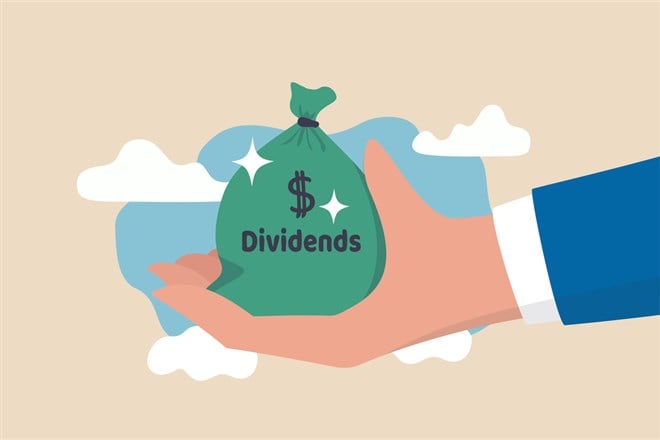
It is shaping up to be an unusual year in the capital markets.
Inflation is as hot as a Manhattan sidewalk, interest rates are rising rapidly, and major stock indices are well off their 2021 highs. This has investors trying to figure out where to hide.
Is cash king in this environment? Yes, it offers downside protection—but no upside.
What about short-term bonds? Yields are moving higher but, with the prospects of more Fed rate hikes, prices appear destined to go lower.
This leads us to equities. Prices are undoubtedly more attractive than they were six months ago, but with recession probabilities high we may not be out of the woods just yet.
A good strategy for this unprecedented backdrop may be to bunker down with steady dividend paying companies that are likely to trend higher as market conditions improve. Compared to what was available at the market peak, there are certainly some big dividend yields out there.
Yet with the equity markets showing signs of stabilization in recent days, some of these sizable income payouts may not be available for much longer. It’s time to grab these yields while supplies last.
What is the Dividend Yield on AT&T Stock?
After finishing down in each of the past two years, AT&T Inc. (NYSE: T) is up 11% year-to-date. Aside from vastly outperforming the broader large cap market, the defensive telecom operator is showing its worth as a solid long-term income play.
Based on the most recently paid quarterly dividend of $0.2775 per share, AT&T is projected to pay $1.11 of cash dividends over the next 12 months. This equates to a lofty 5.4% annualized dividend yield that is more than twice the average communication sector yield.
Granted, a ‘boring’ wireless carrier like AT&T may not excite the average stock investor—especially when the Street is forecasting 5% earnings growth for 2023. But it is growth that is reliable if not conservatively estimated considering AT&T’s 5G network buildout is in the early stages. And besides, boring is often good in volatile markets.
Even if an investor committed to AT&T for only the next three years, the income alone would be far greater than what could be derived from a comparable corporate bond. The current yield on the St. Louis Fed’s high quality market (HQM) zero coupon corporate bond is 3.9%. Add in the capital appreciation that could come from AT&T shares, and this appears to be a risk well worth dialing up.
What is Energy Transfer LP’s Distribution Yield?
Energy Transfer LP (NYSE: ET) comes with a 7.7% forward dividend yield. It also comes with a limited partnership structure and the related tax complexities that some investors prefer to avoid, but it may be worth the mild headache.
As one of the nation’s largest midstream energy groups, Energy Transfer owns approximately 120,000 miles of oil and gas pipelines across 41 states. The company is responsible for nearly one-third of all oil and gas that gets shuffled around the country for industrial production purposes or to fuel our homes and businesses.
This makes Energy Transfer’s vast network a source of steady cash flow, much of which gets passed on to investors. Rather than paying income tax, limited partnerships ‘pass through’ profits (or losses) to stakeholders.
In May 2022, Energy Transfer’s quarterly distribution was increased from $0.175 to $0.20. Assuming this payout remains as is, investors would receive $0.80 per share in dividends over the next 12 months starting with the August 19th payout. And, assuming crude prices remain volatile, this may amount to a safer way to invest in the energy sector.
What Pharmaceutical Stock Has a High Dividend Yield?
Bristol-Myers Squibb Company (NYSE: BMY) has definitely bucked the recent market trend. The drug manufacturer saw its stock advance for seven consecutive months heading into July. Pipeline progress and strong sales of Eliquis and Opdivo, new drug approvals, are responsible for the surge.
In recent weeks, however, concerns about competition from generics are threatening to end the seven-month streak. Earlier this year, Teva launched a generic version of multiple myeloma treatment Revlimid, which has historically accounted for a high percentage of Bristol-Myers Squibb revenue.
As a result, the stock has come down from its $80 record high. In the process, the dividend yield has returned to the 3% level, which is almost twice that of the average health care stock. The below industry average valuation has also become more attractive.
Fears of generic competition could rule the headlines in the near-term, but Bristol-Myers Squibb should pass the test of time. Its current portfolio and pipeline are too strong for it to not overcome the threat of generic competition on a small, albeit important, group of drugs. Over the longer haul, the stock price is likely to trend higher—which means, barring a dividend hike, the juicy yield could trend lower.





